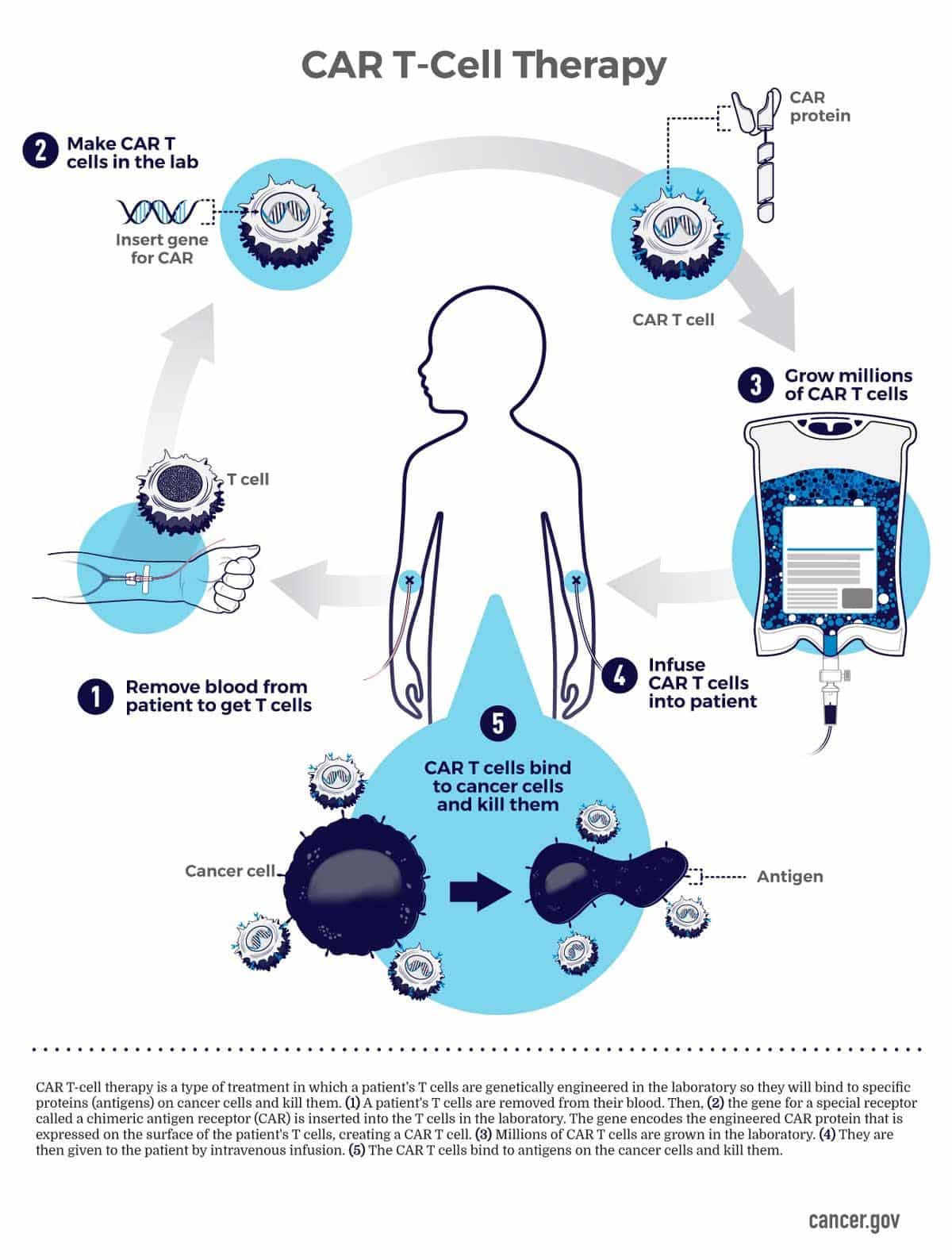Breakthrough in CAR T-Cell Therapy in fighting solid tumours
Study published in The Lancet highlights how researchers used CAR T-cell therapy to treat solid tumours
Author
Author
- admin / 8 months

- 0
- 3 min read

Author
CAR T-Cell therapy has revolutionized cancer treatment across the world but has been most effective against blood cancer, and not as much against other types of cancers, until now. Now, researchers in China demonstrated that they have successfully concluded an experimental immunotherapy using engineered immune cells which significantly improves survival in people with advanced gastric cancer, which is a type of solid tumour that has historically been difficult to treat.
What is CAR T-cell therapy, and how does it treat cancer?
CAR T-cell therapy, or the Chimeric Antigen Receptor T-Cell therapy, essentially involves getting a type of white blood cells called T-cells to fight cancer, by altering them in a lab. They are engineered to be able to find and destroy the cancer cells, and are often used in treating certain types of cancer after other treatments stop working.

What does the new study find?
In this study, published in The Lancet, 156 participants between the ages of 18 and 75 were enrolled, all of whom had advanced gastric or gastro-oesophageal junction cancer that had not responded to at least two previous treatments. The researchers then tested each participant’s tumour tissue for the presence of CLDN18.2, a molecule found in high levels in certain gastrointestinal tumours. The presence of this molecule made the tumours eligible for targeting by the CAR-T cell (satri-cel); a specific type of CAR T-cell.
The researchers divided the participants into two groups, one of 88 who received CAR-T cell therapy and the rest 52 who were administered standard treatments. The 88 participants received the CAR-T-cell therapy up to three times, along with a preparatory regimen designed to suppress non-specific immune cells and enhance the treatment’s effectiveness. The remaining 52 participants who formed a control group were given cancer drugs such as nivolumab, paclitaxel, or rivoceranib, as standard therapies.
The results showed a marked improvement for those receiving the experimental therapy. 35 per cent of patients treated with CAR-T cell (satri-cel) responded to the therapy, compared to just four percent in the control group. On average, patients who received CAR-T-cell therapy lived 2.4 months longer than those given standard treatments. Additionally, those in the CAR-T cell (satri-cel) group were 31 percent less likely to die during the study period than those in the control group.
The phase II study evaluated a therapy known as satricabtagene autoleucel, or satri-cel, which is a form of chimeric antigen receptor (CAR) T-cell therapy. CAR-T-cell therapies involve collecting a patient’s own T cells, genetically modifying them to target specific proteins on cancer cells, and then infusing them back into the patient.
“Satri-cel treatment resulted in a significant improvement in progression-free survival, with a manageable safety profile. These results support satri-cel as a new third-line treatment for advanced gastric or gastro-oesophageal junction cancer patients,” the study found.
The trial’s promising results offer hope for future advances in the use of engineered immune cells to combat solid tumors. Researchers are expected to continue refining the therapy and expanding its application to other types of cancer, with the goal of improving outcomes for patients who have exhausted standard treatment options.










